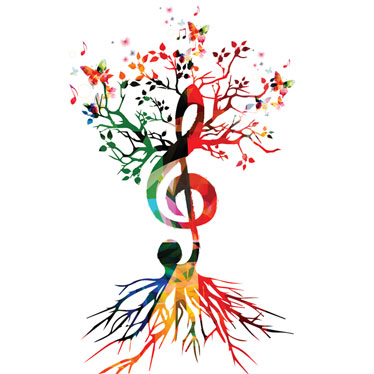What Is A Music Therapist And How Do I Become One?

Over the past few decades, music therapy has become a growing profession. Research is continually proving how effective music therapy can be in changing lives, and as such, the need for talented therapists is expanding. Although not many people know exactly what a music therapist is or how to become one, if you’re interested in working with people and have a love of music, this career may be the perfect path for you.
What Is Music Therapy?
Although the concept of music as a method of healing is an ancient idea, the current profession emerged around the end of both World Wars. When musicians played for injured soldiers, physicians noticed physical and emotional improvement of those patients, and began requesting that hospitals hire musicians. “The first music therapy college training programs were also created in the 1940s. Michigan State University established the first academic program in music therapy (1944) and other universities followed suit, including the University of Kansas, Chicago Musical College, College of the Pacific, and Alverno College” (AMTA).
Unlike “bedside” music that is used to help patients who are recovering from surgery, music therapy is now a specific treatment technique. It is used for addressing and assisting the physical, social, and cognitive needs of individuals by applying music in a therapeutic context. As an allied health profession, the relationship created with music delivers increased ability, communication, and rehabilitation results for a number of physical, developmental, and mental disabilities.
Working with children and adults, music therapists address issues like brain injuries, substance abuse, speech and hearing impairments, and cognitive development. By creating an environment that provides techniques tailored to an individual’s specific need, music therapists help heal.
The American Music Therapy Association (AMTA) was formed in 1998, combining the American Association of Music Therapy (founded 1971) and the National Association of Music Therapy (founded 1950), and is the body that establishes the criteria for the academic and training standards for the industry, as well as creating the professional registration of music therapists across the country. In addition to the code of standards and ethics it institutes, the AMTA also offers publications like the Journal of Music Therapy and Music Therapy Perspectives.
Music therapists are employed in a number of venues. In addition to having a private practice, therapists work in hospitals, addiction recovery centers, hospices, and special education programs, as well as with nurses, physicians, and physical and speech therapists. Essentially, wherever there is a need for alternative forms of healing, music therapy provides a specific, effective way to reach people with special needs.
How Can I Become a Music Therapist?
Like most professions, to become a music therapist you must have the appropriate education and training. At minimum, a Bachelor’s Degree is required, but there are graduate degrees available too. Almost every state university has the course requirements for a music therapy degree, but you should obviously check first. Suggested areas of study for the Bachelor’s Degree (based on 120 semester hours/equivalent) include:
- General Education: English, Math, Social Sciences, Humanities, etc. (approx. 20-25%)
- Music Therapy: Methods and Techniques, Psychology of Music, Music Therapy Research, Influence of Music on Behavior, and other courses that pertain to this topic. This portion of your education also includes internships and other hands-on training (approx. 15%).
- Musical Foundations: Music Theory, Composition, Music History and Lit, Conducting, Ensembles, and your Applied Music Major. Additional courses include functional applications on specific instruments (approx. 45%).
- Clinical: This includes Principles of Therapy, Human Development, Therapeutic Relationship, and others. These foundations provide approximately 15% of your education.
- Electives: About 5%.
Because you are essentially combining therapy techniques with music, a strong foundation in music is required along with your therapy training. According to the AMTA, you’ll need to complete about 1200 hours of clinical training, which will include your internships and field training. By completing both your coursework and experience, therapists can earn anywhere from $35,000 to $135,000 annually, depending on your level of education and location.
Personal Requirements
Although education and training provide the necessary skills to perform the job of a music therapist, something else is needed for this profession. You really must have a strong desire to work with others and have a genuine interest in helping people learn and grow. To be effective, you must develop compassionate, professional relationships with patients and have a lot of patience. Other personal characteristics that are essential include:
- Creativity
- Openness to new ideas and techniques
- Strong empathy for others
- Imagination
- Deep love of music
If you’re interested in pursuing a career in music therapy, visit the AMTA website for tons of free information and a list of schools offering degree programs. You can also look for volunteer opportunities so that you can be sure that this profession is right for you. 

